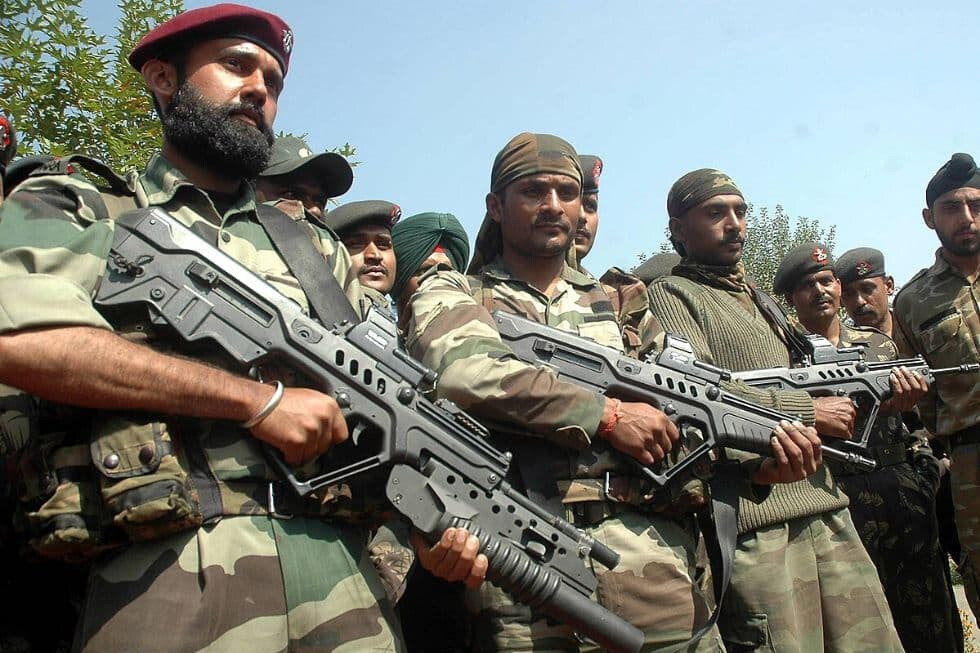
JAKARTA, Indonesia – The United Liberation Front of Asom (ULFA), a separatist group in India's northeastern state of Assam, has claimed that the Indian military conducted drone strikes on their camps inside Myanmar territory. They allege that these attacks resulted in the deaths of three commanders, including their supreme commander, 19 injuries, and even civilian casualties. This incident once again brings to the surface the unstable security situation in the India-Myanmar border region.
Rebel Claims: Indian Drone Strikes Inside Myanmar Territory
In a statement on July 13 (local time), ULFA specifically mentioned that the Indian military used drones to target ULFA camps within Myanmar. ULFA claims that these airstrikes killed three commanders, including their supreme commander, injured 19 people, and caused damage to nearby civilians. They also added that camps of the People's Liberation Army (PLA), another rebel organization advocating for an independent Manipur state in India, were also targeted.
Indian Authorities' Silence: Concerns Over Diplomatic Repercussions
Indian authorities have not yet released an official statement regarding ULFA's claims. This is likely due to a cautious stance, as a cross-border military operation could lead to controversies over international law and sovereignty infringement. If ULFA's claims are confirmed, it is expected to have significant repercussions not only for relations between India and Myanmar but also for the security landscape of the Southeast Asian region. Myanmar, in particular, has been under military rule since the 2021 coup, and its border regions are already unstable due to the activities of various ethnic armed groups and rebel organizations. In such a situation, Indian cross-border military operations could also influence the complex internal dynamics of Myanmar.
History of ULFA and Indian Separatist Movements
ULFA was formed in 1979 with the goal of achieving independence from India and has engaged in various armed struggles to advocate for an independent Assam state. However, prolonged conflict led to severe internal strife, and in December 2023, the pro-negotiation faction of ULFA signed a peace agreement with the Indian government, promising disarmament and reintegration into mainstream society. This was part of India's efforts to resolve the long-standing separatist conflict in the Assam region.
However, the anti-negotiation faction within ULFA relocated their hideouts to the Myanmar border region and continued their separatist activities. They are known to have established their bases using Myanmar's rugged mountainous terrain and the unstable control of the Myanmar military junta, maintaining pressure on the Indian government. The alleged airstrikes could indicate that these remnants of a deeply rooted separatist movement are still active, and that India has taken bold cross-border measures to eradicate them.
Complex Security Issues in Southeast Asian Border Regions
The India-Myanmar border region has historically been identified as a hotbed for transnational crimes such as drug trafficking, illegal arms trade, and human trafficking. Furthermore, the activities of various ethnic rebel groups crossing both borders further complicate the region's security. India has cooperated with the Myanmar military to prevent insurgencies by separatist groups within its own borders, but internal instability in Myanmar has been a factor hindering such cooperation.
If ULFA's claims prove true, it could be a clear signal that India will not hesitate to exercise its sovereignty across borders for its own security. This is expected to intensify international attention and concern regarding security issues in Southeast Asia's border regions in the future. Along with this, the loss of control by the Myanmar military and the deepening instability in the India-Myanmar border region are projected to present complex diplomatic and security challenges to neighboring countries.
With no official statement yet from Indian authorities, the truth of this situation requires further verification. However, this incident once again highlights the deep-rooted conflict in the India-Myanmar border region and the complex security environment of Southeast Asia.
[Copyright (c) Global Economic Times. All Rights Reserved.]



























